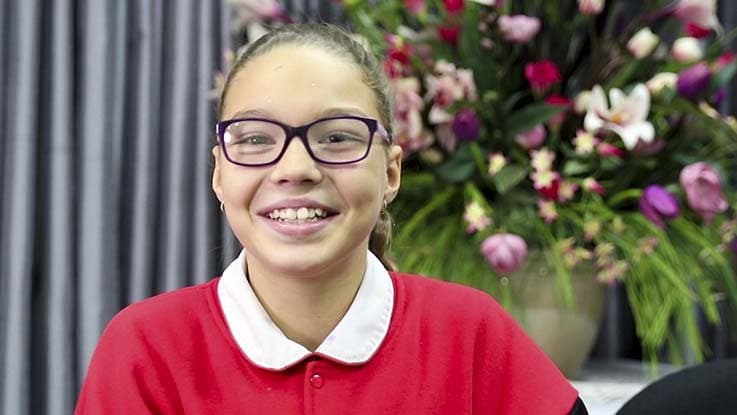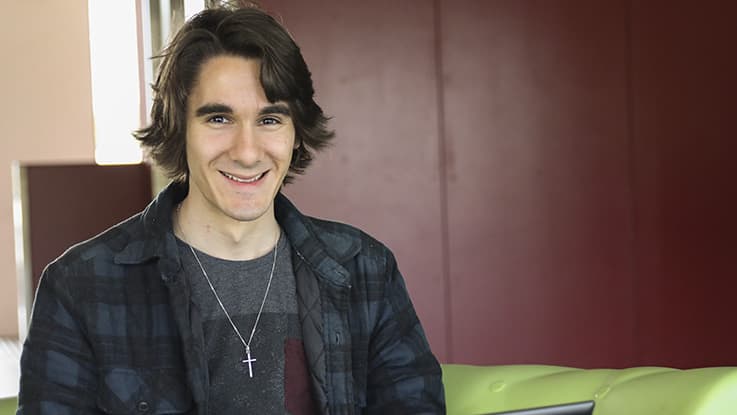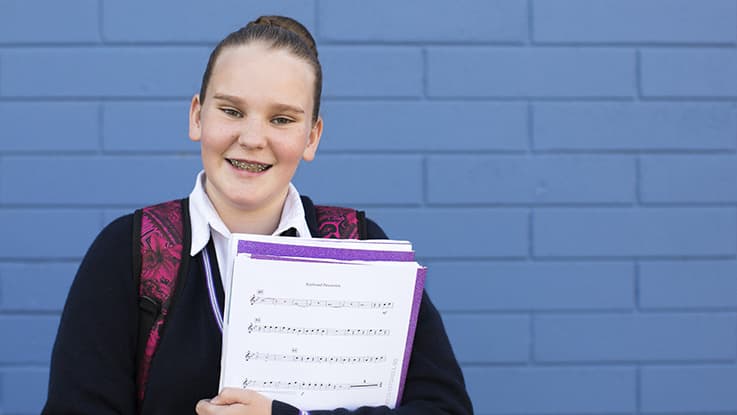
Getting careers education right can make all the difference – how the Growing Careers Project is opening new doors for students

All David Samaha recalls of his careers education at high school is that it was “rubbish”.
“I remember my Year 10 interview with the careers counsellor, and it went for about two minutes,” said Mr Samaha, who is now the Principal of Maroochydore State High School.
“They said, ‘you’re doing this’, and then off I went.”
Luckily, what Mr Samaha experienced 35 years ago is not what students experience today.
Careers education has come a long way, particularly in recent years.
In the past, it often culminated in a short meeting with the careers’ advisor at school, who recommended to “work in a bank, get a trade or try the public service”.
Work experience was whatever a mate of your dad could fit in for you.
If you came from a small town or lived in a low socio-economic area, you’d likely go on to do the same thing as your mum or dad, which in Mr Samaha’s case, was to work in a sugar mill.
“To me, it hasn’t always sat well that there weren’t opportunities to see other things or know other things,” Mr Samaha said.
“My luck didn’t change until a friend of mine filled out a university application and put my name on it.”
When careers education is done properly, it has significant and long-lasting impacts.
And in a rapidly evolving world of work, it’s becoming even more important for students and more challenging for teachers to keep up.
“In schools, we have a view of the world, and we want to be outward thinking, but we don’t know what the jobs are or how the workforce has changed. We read and we try to keep up, but we’re not experiencing it ourselves,” Mr Samaha said.
“But we’re committed to supporting students as they make the transition from high school to the next phase of life, be it pathways to work or further study and training.
“The programs provided to enhance career planning significantly broaden the knowledge and experiences available to students.
“It is vital that students have the information they need to consider a wide range of career pathways.”
In the Keeping Kids Safe and Well report (December 2021) released by the Australian Human Right Commission and the Federal Department of Social Services, young people and families spoke about the importance of education that leads to job opportunities.
Exposing young people to a diversity of viable career pathways and supporting them to make informed choices about their future is key.
But it’s often said that you can’t be what you can’t see.
To help students understand what is available and expose them to the complex world of careers, a new project run by children’s education charity, The Smith Family, is supporting young people to see and experience more.
The Growing Careers Project, funded by the Australian Government through the Department of Education, Skills and Employment, is aiming to enhance careers support in high school.
It’s offering over 76,000 places for students to take part in a structured program of careers education from 2021 to 2024, which could encompass anything from a short activity on interview skills to 18 weeks of one-on-one online career mentoring or spending a few days in a workplace.
The project is based on international evidence, which finds that when young people have multiple exposures to the world of work during high school, it positively impacts their post-school involvement in work, training or further study.
“Our aim is to support students across the four years of the project, and to evaluate the impact that’s had on their knowledge, confidence and aspirations to pursue a meaningful career pathway,” said Doug Taylor, CEO of The Smith Family.
“We’ll look at what’s resonating with them from a careers perspective and we’ll be sharing what we learn so that hopefully the whole careers education system can benefit.
“Young Australians are facing one of the most challenging labour markets in living memory, so focusing on providing effective careers education is fundamental to support the next generation.”
For students living with disadvantage who may lack access to networks of support and industry connections, this essential exposure to the world of work enables them to consider a range of new possibilities for their future.
“For these kids, their view of the world of work can be limited,” said Mr Samaha.
“Success is often reliant on the parents being from an educated background, and if they’re not, the chances of those kids going off to university or securing a job of choice rather than a job of chance, is far less likely.
“At our school, The Smith Family broadens the conversation, where students can bring to the table more ideas of careers they’ve seen or experienced.
“It’s most important that kids get used to thinking about their future and how to find different opportunities, how to look them up or meet people and have a conversation.
The more they do that and gain those skills, it doesn’t matter whether they end up in that specific career or not, it’s just that they develop that mentality where they believe, ‘I can do anything’.”




